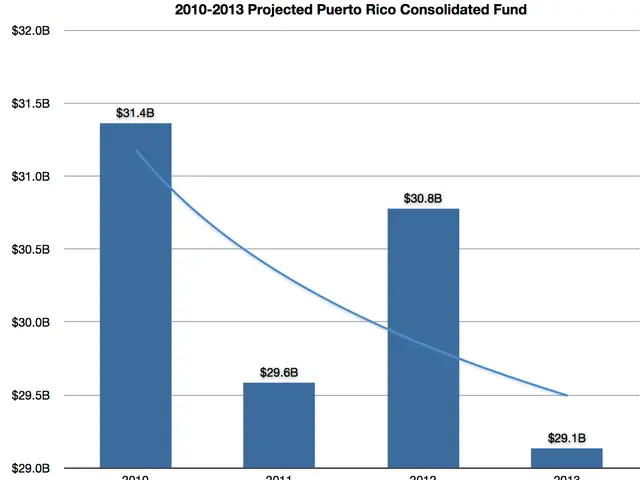Avoiding Common Mistake in Investing: Rationale Behind Holding onto Losing Positions Initially
In the world of stock market investing, volatility is a common and often unnerving factor. However, it's essential to remember that occasional pullbacks are a normal part of the stock market's cycle. This article explores the benefits of holding onto great companies, even during periods of short-term losses.
Great companies like Netflix, Apple, and Amazon have proven to be worth holding onto for decades, despite various big and small price drops. For instance, Apple shares have fallen by more than 30% multiple times in the past decade, while Netflix plunged 35% in one day in 2011 due to a big loss of subscribers. Yet, those who have made significant profits investing in such companies have typically held their stocks for many years.
The stock market's volatility requires investors to be patient and not panic-sell during pullbacks. Selling a stock too soon can occur due to the first loss or due to interest in another stock. Selling a stock without investigating the reasons for its performance can lead to missing potential recovery. It's important to take time to investigate a stock's performance before selling, to determine if the company is facing short-term or long-term problems.
Investing rookie mistakes often include selling a good stock too soon. For example, Amazon's shares fell by more than 90% at one point long ago. However, those who held onto their Amazon shares were rewarded handsomely as the company recovered and soared to new heights.
Investors should consider the long-term prospects of a company before making decisions about selling its stock. The stock market is not a straight line, but a jagged one, with volatility being a common part of stock investing. The market has periods of growth and contraction; it is difficult to time these perfectly, and downturns often precede strong recoveries.
Established companies frequently recover from setbacks, driven by fundamentals, strategic adjustments, or market rebounds. Companies like Berkshire Hathaway offer diversification and value that can stabilize portfolios during volatile periods. Holding onto great stocks like Netflix, Apple, and Amazon, despite price drops, can be beneficial over the long term.
Avoiding panic selling is another advantage of holding onto stocks during tough times. Selling during dips locks in losses, whereas staying invested may capture eventual gains when confidence and prices return. The benefits of holding onto stocks despite short-term losses include market cycles, long-term growth potential, diversification and value, and avoiding panic selling.
In conclusion, significant stock drops often reflect temporary challenges or market reactions rather than permanent damage. Holding onto shares of fundamentally sound, successful companies allows investors to benefit from long-term value creation despite inevitable short-term volatility. Berkshire Hathaway’s recent struggles illustrate typical stock volatility linked to leadership changes and operational setbacks, yet experts still consider it a valuable holding for patient investors.
[1] Berkshire Hathaway's shares plummet 14% after Warren Buffett announces stepping down as CEO and a $3.76 billion writedown on its Kraft Heinz stake dampens investor confidence. (2021, March 30). MarketWatch. Retrieved from https://www.marketwatch.com/story/berkshire-hathaways-shares-plummet-14-after-warren-buffett-announces-stepping-down-as-ceo-and-a-376-billion-writedown-on-its-kraft-heinz-stake-dampens-investor-confidence-11617087065
[2] Berkshire Hathaway: A Case Study in Investment Strategy. (n.d.). Investopedia. Retrieved from https://www.investopedia.com/terms/b/berkshire-hathaway.asp
[4] The Importance of Patience in Stock Market Investing. (n.d.). Investopedia. Retrieved from https://www.investopedia.com/terms/p/patience.asp
- Investing in great companies like Berkshire Hathaway can offer diversification and value, helping portfolios stay stable during volatility, as demonstrated by the 14% drop in its shares after Warren Buffett announced stepping down as CEO. (Referenced from [1])
- Holding onto stocks like Netflix, Apple, and Amazon, even during periods of short-term losses, can be advantageous in the long run due to market cycles, long-term growth potential, and the ability to avoid panic selling, as proven by Amazon's recovery from a 90% drop in the past.
- Patience is vital in stock market investing, as waiting out short-term volatility and investigating a stock's performance before selling can lead to capturing eventual gains, as evidenced by Berkshire Hathaway's eventual recovery despite its struggles. (Referenced from [1], [2], [4])




